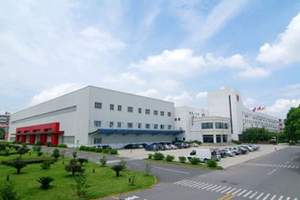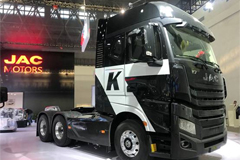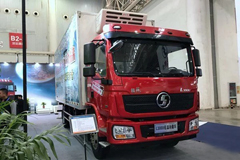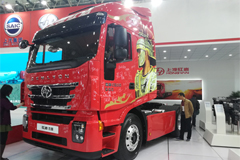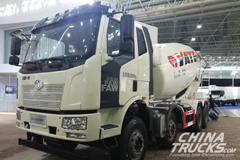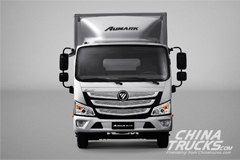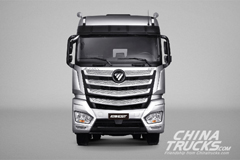Driveless Truck 'Platoons' Head for Australia's Main Roads
www.chinatrucks.com: At some point in the next decade, driverless trucks in Australia will make the jump from mine sites to main roads. When that happens, transport experts predict big gains for road safety and freight economics, but disruption for some of the nation's 190,000 truck drivers.
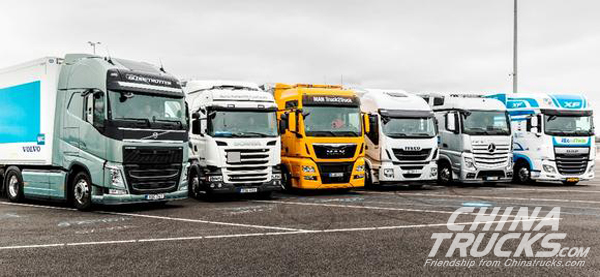 European trucks from left, Volvo, Scania, MAN, Iveco, Mercedes-Benz and DAF, all started platooning trials in 2016.
European trucks from left, Volvo, Scania, MAN, Iveco, Mercedes-Benz and DAF, all started platooning trials in 2016.For other road users, driverless trucks will usher in the era of "platooning" -- what used to be called convoys -- and the prospect of driving down a highway alongside four trucks nose-to-tail, with just the barest of gaps between them.
Platooning offers the potential for big fuel savings through reduced drag, with a lead truck and driver controlling the movements of the driverless vehicles tucked in behind. Without the need for the three-second gap that covers a driver's reaction time, these trucks sit just a few meters apart at a constant speed, presenting a streamlined profile that can mean fuel savings of up to 15%.
Small-scale platooning is already in use in Europe, where truck makers such as Scania, DAF, Iveco, MAN, Volvo and Daimler are working with technology companies and research centers to bring autonomous trucks and vehicle-to-vehicle communication to commercial reality as quickly as regulations allow.
Similar work is underway in North America (through ride-sharing company Uber's subsidiary Otto), and in Asia, where Japanese makers Hino and Isuzu and China's FAW Jiefang are developing driverless trucks. Volvo is testing an autonomous truck in an underground mine in Sweden. Elsewhere, they are being used in other controlled environments such as the port of Rotterdam -- and soon, in Singapore -- and there are various tests of driverless buses underway around the world, including in Australia.
Decade of development
A FAW Jiefiang driverless truck on a road in China. (Photo courtesy FAW Jiefang)The general consensus is that the next 10 years will determine how quickly fully automated trucks become prevalent. McKinsey & Company said in a study last September that a third of all new premium trucks in the West would have Level 4 automation -- meaning self-driving on highways -- in 2025.
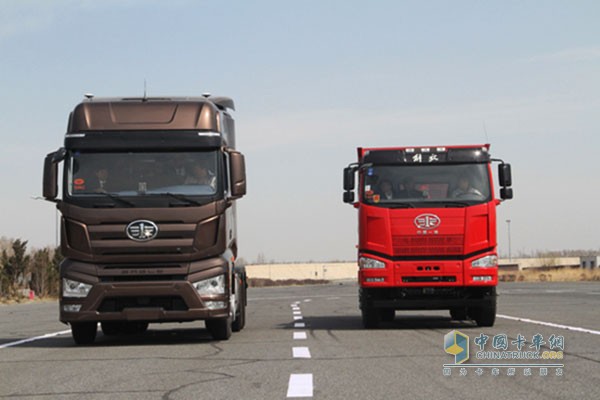 FAW Jiefiang driverless truck on a road in China
FAW Jiefiang driverless truck on a road in China
In March this year, Otto co-founder Lior Ron told a technology conference in San Francisco that the U.S. would see broad deployment of driverless trucks within the next 10 years. Navigant Research reported in April that it expected the adoption of fully automated trucks would begin "in the next decade."
A report on driverless trucks released by the Paris-based International Transport Forum on May 31 said automation would reduce freight costs, cut exhaust emissions and make roads safer, but the impact on driver jobs globally would need a "managed transition." It said driverless trucks could reduce the demand for drivers by 50-70% in the U.S. and Europe by 2030, with up to 4.4 million trucking jobs becoming redundant.
Australia is a relatively small truck market, but its driving conditions and long distances between its major population centers make it ideal for testing autonomous truck technology, according to Rita Excell, executive director of the Australia and New Zealand Driverless Vehicle Initiative, an industry cooperative body.
Views:0
- 209 Jiefang J6P Tractors Were Delivered to Mongolia 2022-04-02
- FAWDE’s Engine Export Increased by 37% YOY in Q1 2022-03-31
- Over 100 Jiefang Heavy Trucks Are Delivered for Railway Construction in Nigeria 2022-03-07
- FAW Jiefang Put into Operation Its J7 Smart Vehicle Plant 2021-12-20
- FAW Jiefang: Overseas Sales to Account for 10% of Total Sales by 2025 2021-11-26
- FAW Jiefang and ZOOMLION Continue to Deepen Their Strategic Partnership 2021-11-25
- FAW Group Participates the Second China-Africa Economic And Trade Expo 2021-09-30
- FAW-Eastern European Company Set Sales Record of Over 1000 Units for CV 2021-08-24
- Top Ten Tractor Manufacturing Companies in China in July 2021-08-23
- FAW Jiefang Rolls Off Its 8 Millionth Vehicle 2021-07-16
Submit Your Requirements, We Are Always At Your Service.
- BYD Stopped the Production of Fuel Vehicles
- Geely Began Test Runs of Green E-methanol Vehicles in Danmark
- 2022 SANY Global Dealer Summit Was Held Successfully Online
- BYD and Shell Partner on EV Charging across China and Europe
- Daimler Truck Significantly Increase Sales, Revenue and Net Profit in 2021
- Scania Year-end Report January-December 2021
- Hyundai Motor and Iveco Group Sign MOU to Explore Future Collaboration
- GAUSSIN Enters China, the Largest Truck Market in the World
- Over 1,200 Hydrogen-powered Vehicles Deployed for the Beijing Winter Olympics
- Chinese New Year Holiday Closure Notice
- China's Truck Exports Grew by 30% YOY to 63490 Units in January-February
- China's New Energy Heavy Trucks Grew Despite an Overall Slump
- Heavy-duty Truck sales in China Fell by 54% to 54,000 units in February
- SINOTRUK Achieves Sales of 27,725 Vehicles in January, 2022
- China’s Domestic Tractor Sales Exceed 40,000 Units in January
- 2021 JAC International Pickup Export Performance
- JAC Achieved a Great Result in 2021
- China's Truck Export in 2021 Reached a 10-year Peak
- Heavy-duty Truck Sales in China Fall 57 Percent on Year in January
- China Recorded Sales of 645000 Tractors in 2021



